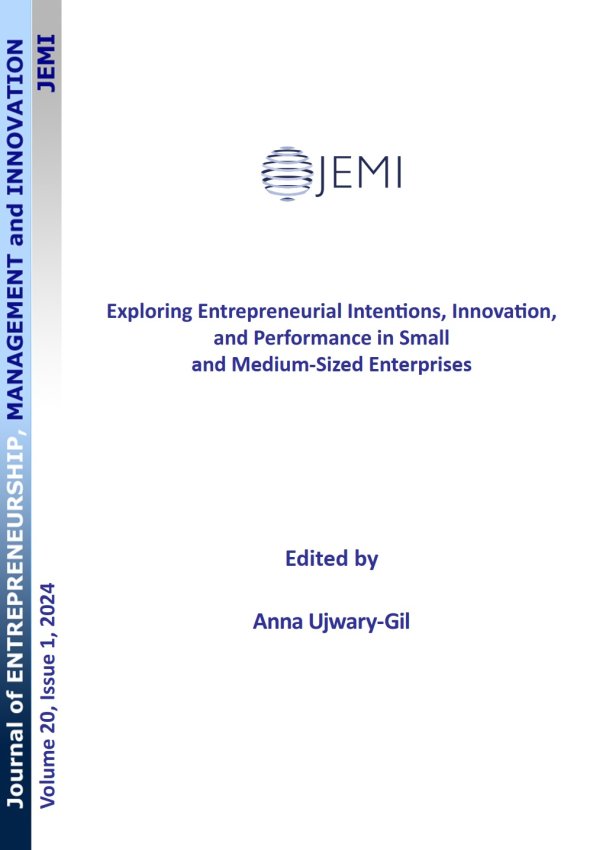Julita E. Wasilczuk, Professor of Gdansk University of Technology, Faculty of Management and Economics, Gdansk University of Technology, Narutowicza 11/12, 80-233 Gdańsk, Poland, e-mail: This email address is being protected from spambots. You need JavaScript enabled to view it., corresponding author. 
Magdalena Licznerska, M.A., Faculty of Management and Economics, Gdansk University of Technology, Narutowicza 11/12, 80-233 Gdańsk, Poland, e-mail: This email address is being protected from spambots. You need JavaScript enabled to view it. 
Abstract
Purpose: Our main aim is to establish which factors influence entrepreneurial intentions, with a particular focus on the role of entrepreneurial education and university support in Central and Eastern European countries (CEE). An additional aim is to determine the differences in these perceptions between students from seemingly similar but rather different CEE countries. Methodology: We based our study mainly on two theory constructs, namely the entrepreneurial support model (ESM) and entrepreneurial self-efficacy (ESE). Both concepts often appear in research on entrepreneurial intentions, but they are not used together. Moreover, we proposed a new education-related factor – perceived entrepreneurial education results (PEER). To verify hypotheses quantitative research was conducted using surveys among 2,085 first-year undergraduate students from three technical universities in three countries: Latvia, Poland and Ukraine. Findings: The results of the study indicate that entrepreneurial self-efficacy, perceived entrepreneurial education results, and perceived educational and relational support all influence the intention of students to launch a venture. The research did not provide support for the hypothesis of an impact of perceived structural support (PSS) on intentions. The impact of perceived educational and relational support appeared to be less important than the impact of ESE and PEER on intentions. Additionally, we identified that there are significant differences between students from the analysed countries. Implications for theory and practice: Our research has identified a new factor, not previously used in studies of entrepreneurial intentions, that is, perceived entrepreneurial education results. This new factor can be used in research as a complement to self-efficacy and it refers to hard skills related, in this particular case, to entrepreneurship. The results show the importance of the national context, implying the need to take this into account when modelling support policies at a national level. The findings can be used to remodel how this knowledge is delivered to young people. Originality and value: Firstly, we proposed the inclusion of a new education-related component called perceived entrepreneurial education results, which can examine the perceived results of education at any level, in our case, at the secondary school level. Secondly, we showed the stronger influence of factors related to perceptions of one's own skills than perceptions of support from the environment. In addition, we demonstrated that making judgements or recommendations about entrepreneurial support, for rather similar countries, should be considered separately. Furthermore, we conceptualised the three aspects ESE, PEER and ESM in a new way. Finally, we also proved that the role of individual factors varies from country to country, even if the countries belong to the same cultural background and share a similar past experience.
Keywords: entrepreneurial intentions, entrepreneurial education, perceived entrepreneurial support model, entrepreneurial self-efficacy, perceived entrepreneurial educational results, Central and Eastern European Countries, CEE countries, comparative analysis






